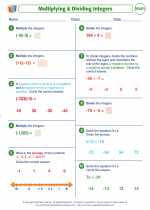Associative Property
The associative property states that the way in which numbers are grouped in an addition or multiplication problem does not affect the sum or product.
Addition:
For any three numbers a, b, and c, the associative property of addition can be written as: (a + b) + c = a + (b + c).
This means that when adding three or more numbers, the grouping of the numbers does not change the sum.
Multiplication:
For any three numbers a, b, and c, the associative property of multiplication can be written as: (a * b) * c = a * (b * c).
This means that when multiplying three or more numbers, the grouping of the numbers does not change the product.
Example:
Let's consider the following example for addition:
(2 + 3) + 4 = 2 + (3 + 4)
Here, according to the associative property of addition, both sides of the equation will have the same result.
Study Guide:
- Remember that the associative property is only applicable to addition and multiplication.
- When working with addition, you can change the grouping of the numbers without changing the sum.
- When working with multiplication, you can change the grouping of the numbers without changing the product.
- Practice various problems involving addition and multiplication to understand and apply the associative property.
[Associative Property] Related Worksheets and Study Guides:
.◂Math Worksheets and Study Guides Eighth Grade. Integer operations
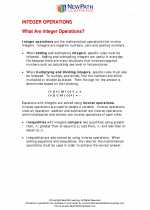
 Worksheet/Answer key
Worksheet/Answer key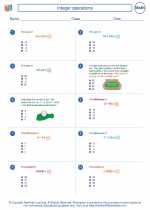
 Worksheet/Answer key
Worksheet/Answer key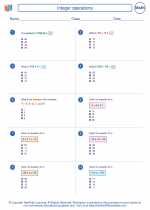
 Worksheet/Answer key
Worksheet/Answer key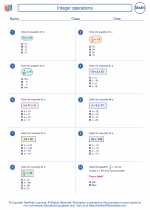
 Worksheet/Answer key
Worksheet/Answer key